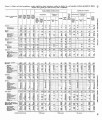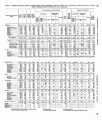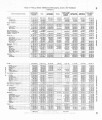| OCR Text |
Show 26 COMMISSIONER OB INDIAN AFFAIRS. from taxation. At the same time the instances are far too frequent where those of one-half or less Indian blood--often young men who have had excellent educational privileges-secure patents in fee, dis-pose of their land at a sacrifice, put most of the proceeds in an auto-mobile or some other extravagant investment, and in a few months are " down and out," as far as any visible possessions are concerned. The situation, therefore, suggests-the need of some revision of practice as a check upon the machinations of white schemers who covertly aid the issuance of fee patents in order to cheat the holders out of their realty, and as a restraint upon those who are not so lackin in competency as in the disposition to make the right use of it, a n t also as a stimulant to the thrifty holder of a trust title to accept the entire management of his estate with the full privileges and obligations that follow. The well-known purposes of the Government are to fit the Indian for self-support and to protect his interests while doing so, and then to expect him to do his best toward independent hving. The Government should not be expected to shirk its trust. It should not be made easy for young men to squander their substance and drift , . into vagrancy, nor for successful landholders to .:!main ,under re-strictions not justified by their qualifications for citizenship. It is hoped to figd a way through which the competency of an applicant for. a patent in fee'can he tested by actual accomplish-ments on his land or in the particular industry in which he may he engaged, such as the maintenance of himself and family? if mar-ried, in a fair degree of comfort for a definite period pnor to his application, so that not only. the ability but the inclination and am-bition to exert it will be evidenced and constitute a determining ele-ment. The same principle also argues that this standard of compe-tency should bar an extension of the trust period to epery energetic Indian who, is getting ahead year after year, ,provmg himself a capable farmer, stock grower, or a thrift prov~der for his family in some vocation,, and because of this a h t y to manage well his affairs should gladly assume the full rights and obligations which the issuance of a patent in fee conftrs. In all such instances of un-questionable competency consideration $ght we!l be. given to the matter of determining the Individual Interests ?n tribal property and turning over to these progressive Indians their full share of the tribal estalte. SEGREGATION OF TRIBAL FUNDS ON FINAL ROLL. Th act of May 25,1918 (40 Stat. L., 591) and June 30,1919 (41 ~ t a t . i .9, ) >p rovide that the funds of any ~ndiantr ibe, if susceptible of segregation, mag be distributed among the members thereof upon the preparation and approval of a final roll. Under authority of the acts mentioned, final rolls have been approved or are in process of Greepnatr.a tion on the following reservations: Crow and Flathead, Fort Hall, Idaho; Cheyenne and Arapahoe, Osage Kiowa, Otoe, bonca, and Pawnee, Okla.; Rosebud, Sisseton, and Pankton, S. Dak.; and Spokane, Wash. The practice le to pay the shares of competent Indians to them for expenditure as they see fit, and to place the shares of and minors to the credit of their respective accounts, individual Indian money regulations. |









































































